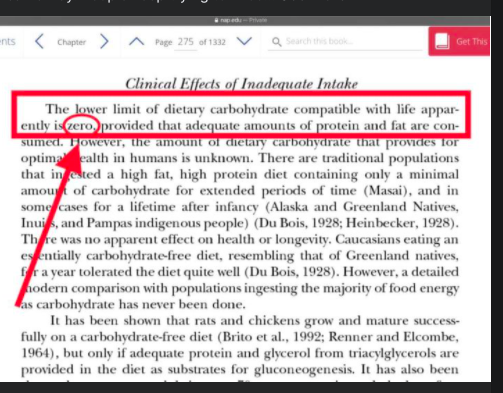|
Specifically, when you’re suffering from low energy, eating carbohydrates actually damages the powerhouse of the cell, temporarily reducing your symptom, but long-term worsening the disease of low energy: https://www.cell.com/cell.../fulltext/S2211-1247(21)00915-3
Do keep in mind that repeated overexposure to stress will flood the bloodstream with excessive glucose and hamper receptors in the same way. People keep trying to knock down the symptoms with eating, which precisely progresses the disease. In many cases, especially inflammatory diseases, quelling symptoms comes at a severe cost: the disease gets worse. This is broadly true. Even in injury therapy, we are seeing the common recommendations increasingly trend away from anti-inflammatory drugs and ice and so on. If you get a surgery nowadays, you will be forbidden from taking anti-inflammatories before and usually for six more weeks afterward. Some of that discomfort and pain is the body trying to heal itself. When we interrupt the signal, we interrupt the healing. Symptoms are often a strong signal of the body attempting to wake you up to how you’re harming it. Turning off the symptom is precisely wrong. We see this in pain science, wherein repeated cortisone injections increasingly weaken the offending tissue. People get a reprieve from the pain in exchange for the joint accelerating its deterioration. In gastrointestinal issues, medication reduces the symptom of heartburn or reflux in exchange for raising risk of GI cancers. In many autoimmune diseases, foods are among the triggers; people take the medication and keep eating the offending foods, always confused at how “random” the flare-up is. Nothing is random. The universe is complex, but not random. I’ve had a client identify corn sensitivity so severe that she would get flare-up with NO corn eaten - she discovered that some canned goods used a corn derivative in the insulating material inside the can. It wasn’t random at all. But she had to dig VERY deep in examining which foods and even cross-contaminants triggered her responses. And it was a search beyond the expertise of all of her medical specialists involved. The most prevalent disease is low energy or chronic fatigue. It’s wrapped up in all sorts of other diseases. But energy is a really tough one, because almost every technique people go to in order to address the lack of energy ends up worsening the disease. The brain incorrectly tells us it needs carbohydrates. Of course, it doesn’t. I’ve fasted for 6 days when I was already very lean. We all have enough stored energy on us as adults to avoid eating anything for weeks or months. Frankly, we should, at least once or twice a year. And the study in Cell tells us why. Carbohydrates damage the way we even get energy into cellular function. The way to cure the disease is to temporarily make the symptoms WORSE, a lot worse. But, in three days of fasting or at least low protein and no carbs, we clear the inflammatory cascades a tiny bit, such that the pain of low energy can be replaced with the healing of the low energy disease. It’s very similar to how people will avoid strengthening a problematic shoulder or hip, reducing symptoms, only to later discover the shoulder and hip are still in pain but now also weak. This makes what could’ve been just a low level irritation into a surgical candidate. Symptoms are not disease. Fixating on symptom will not yield the answer to the disease. Avoiding, reducing, or eliminating symptoms often comes at the cost of much worse health outcomes. We have to have the patience, the investigatory fastidiousness, and the willingness to let symptoms get worse before the diseases can get better. With energy and eating, this is especially true.
0 Comments
Your comment will be posted after it is approved.
Leave a Reply. |
Elev8 Wellness
|
LIVE. AWESOME.We offer the highest quality in personal fitness, nutrition, and mindset coaching, helping you achieve your fitness, health, wellness and performance goals no matter the obstacle. With virtual online training and private, in-studio training we make it easier to reach your wellness goals safely.
No more can't. No more not good enough. If you compete in a sport, let your mind no longer hold you back from being the greatest. If you don't, let your mind no longer hold you back from being the best version of you that you can be. Sign-up for a Tour Covid Screen Waiver Elev8 Waiver Become an Elev8 Instructor Space Rental |
6244 lyndale ave. s., minneapolis, mn 55423
|
© 2021 Elev8 Wellness LLC. All Rights Reserved. site map | contribute | SITE BY Sproute Creative


 RSS Feed
RSS Feed
